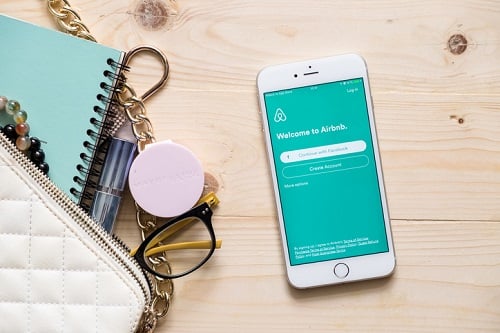Dealing with strangers is a small price to pay for extra cash

More than half of homeowners said they’d consider renting out their homes with Airbnb or a similar vacation rental app, according to a recent survey conducted by Clever Real Estate.
The study, which surveyed 1,000 Americans who have used both Airbnb and hotels in the past 12 months, also found that 82% of homeowners believe that Airbnb is a good way to make money from their property.
Although some municipalities are cracking down on the regulations surrounding short-term rentals, rentals provide a semingly endless opportunity for homeowners to make some extra cash. In the right markets, Airbnb rentals can help homeowners shave a little off their mortgage each month by renting anything from a spare bedroom to their entire property when they’re away themselves. But Tommy O’Shaughnessy, Clever Real Estate’s head of research, adds that it’s not always as profitable as homeowners may think.
“Whether renting out your second bedroom will end up being profitable is entirely dependent on the local market, and it’s not always the hottest housing markets that make for the best Airbnb rental properties,” O’Shaughnessy writes in the report.
Rental data analysis firm AirDNA finds that markets in Detroit, MI, Memphis, TN, Cleveland, OH, Indianapolis, IN, and Louisville, KY could make hosts between $2,500-$5,500 in annual profit for renting out a private room. “Exceptional markets” such as Sedona, AZ or Savannah, GA, could potentially make a gross profit of $8,000-$12,000.
Investors looking for an exceptional return on a vacation rental need to pay even more attention to hidden markets. Aspiring investors might think that they should choose a property in the highest price bracket they can afford to get the best return on investment, but according to AirDNA, that approach is “totally wrong, indicating a strong negative correlation between house price and Airbnb gross revenue.”
Cities with high property costs and competition are high provide investors a negative return on their investment, even in smaller markets. Small- to mid-sized towns with high occupancy rates are much better bets when it comes to choosing where to invest in a vacation rental property. Again, Detroit stands out in this category.
“When the supply of Airbnbs in smaller cities can’t meet the demand, the cost to rent an Airbnb rises and homeowners benefit. As home prices continue to rise, Airbnb will continue to become a popular option among homeowners looking for supplemental income,” O’Shaughnessy writes.
Renters are much more likely to use Airbnb and other peer-to-peer home-sharing services for vacation travel as opposed to business travel for a number of reasons, such as the familiarity and predictability of the environment that business travelers need. Vacation renters are also potentially more likely to be traveling with family, and require more at-home comforts such as separate spaces for family members or full kitchens than business travelers.
Although Airbnb isn’t a threat to hotels for business travel, there is a serious threat to hotels for vacationers due to the “virtually limitless” supply of potential vacation rentals; any homeowner can sign up, fill out an application, and put all or part of their home on the rental market.
Other key findings of Clever Real Estate’s survey include:
- 60% of travelers prefer Airbnb over comparable hotels when going on vacation
- 68% of business travelers prefer staying in hotels when traveling for work, and are more likely to have a negative experience at an Airbnb
- 58% of Airbnb users said they were concerned about hidden cameras, and 7% said they’ve stayed in an Airbnb and discovered a hidden camera
- Marriott’s Homes & Villas luxury rental service is making a splash among high-end travelers: half of luxury travelers have heard of the Marriott’s new service, and they’re intrigued by the benefits of Marriott’s rewards program



